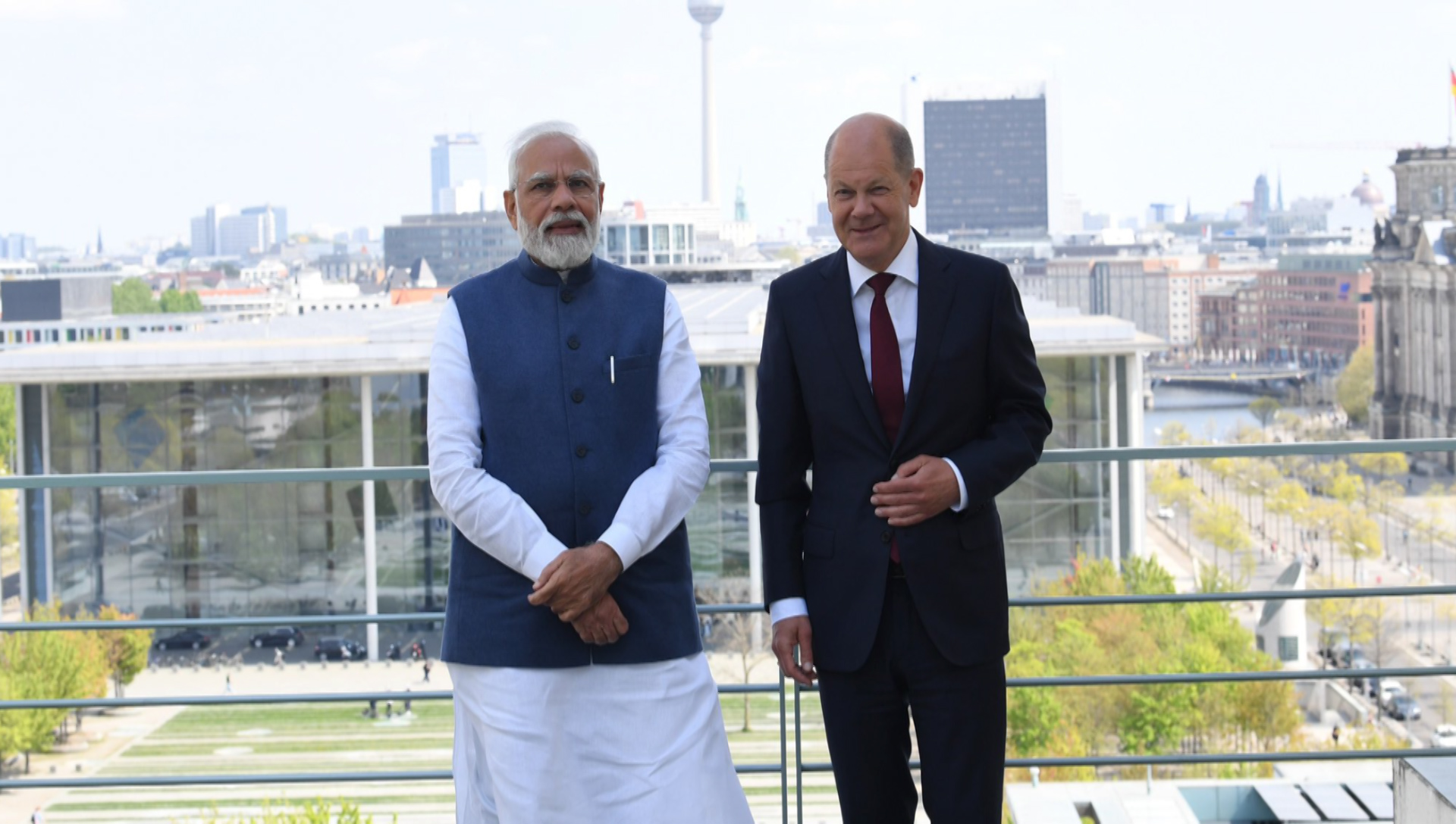NEW DELHI: Prime Minister Narendra Modi and German Chancellor Olaf Scholz appealed for peace in Ukraine in their first joint address after their meeting in Berlin on Monday.
“Geopolitical developments have shown how fragile peace and stability in the world are and how interconnected all countries are,” PM Modi said while delivering a brief joint address after the India-Germany inter-governmental (IGC) on the first day of his tour of Germany.
“At the beginning of the crisis in Ukraine, we immediately called for a ceasefire and emphasized the fact that dialogue was the only way to resolve the conflict,” PM Modi said. “We believe that no party can emerge victoriously. Everyone will suffer losses and that’s why we are for peace,” he added.
“Due to the turmoil caused by the war in Ukraine, oil prices are skyrocketing. There’s a shortage of food and fertilizer in the world. There is a burden for every family in the world,” PM Modi pointed out. “India is very concerned about the humanitarian impact of the war,” he stated. PM Modi also appraised how India supported Ukraine by sending food grains to besieged Ukraine.
In his address, Chancellor Olaf urged Russian President Vladimir Putin to put an end to the conflict. “Attacking Ukraine, Russia has violated the international fundamental principles of the UN charter. I repeat my appeal to Vladimir Putin to end this war and end killing,” the German Chancellor had said.
Meanwhile, in an important decision that will boost sustainable development, India and Germany launched a Green and Sustainable Development Partnership. Through it, Germany will provide Euro 10 million, until 2030, which will help India’s climate transition plans.
“Today we are launching the India-Germany Green and Sustainable Development Partnership. India has shown to the world that green and sustainable growth is an article of faith for us by raising its climate ambition in Glasgow,” PM Modi said. “Under this new partnership, Germany has decided to support India’s green growth plans with additional development assistance of Euro 10 billion by 2030. For this, I thank Germany and Chancellor Scholz,” he added.
Describing India as a central part of Germany’s plans for Asia, Chancellor Scholz said that the country’s economic and population growth made it a key player in tackling global climate change and its consequences. “Look at the impact the current heatwave in India has had on its population – that is an indication of the impact climate change is having and that we have to do what we can to stop it,” he said.
India and Germany also agreed to launch a renewable energy partnership focused on innovative solar energy and other renewables, including challenges related to electricity grids and storage, and to create a Green Hydrogen Task Force.
The two countries also welcomed the finalisation of negotiations for the Indo-German partnership and Comprehensive Migration and Mobility Partnership Agreement which will benefit students and professionals from both the countries.
“This goes to show our relations are not important and intensive but it is also based on a deep sense of trust,” Chancellor Scholz said. “The higher education and science sectors are good indicators of Indo-German partnership. There are more than 7 per cent Indians who are studying German universities and educational institutions,” he stated.
PM Modi also spoke about the agreement on implementing joint development projects in third countries and said these ventures will gain from India and Germany’s long experience in development cooperation in other countries. “Our collaboration will provide an alternative to transparent and sustainable development projects for the developing world,” he said.
The two sides also signed agreements on the exchange and mutual protection of classified information and establishing a direct encrypted connection between the foreign ministries, cooperation in advanced training of corporate executives and junior executives from India, agro-ecology, and forest landscape restoration.










